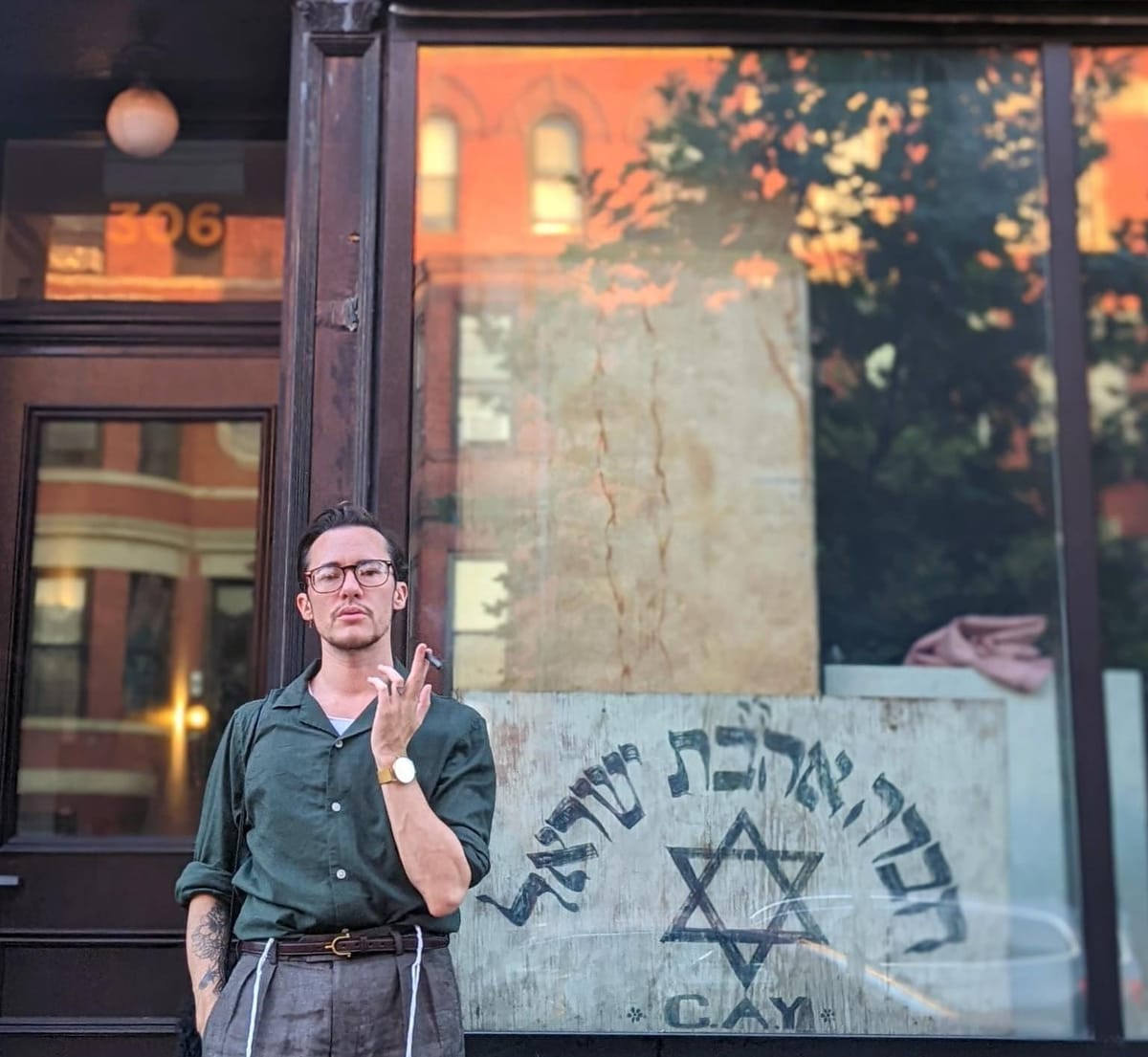A reluctant farewell: an open letter for my former co-congregants at CAY

Dear Chevra,
It is with surprise and great sadness that I learned that the Board of Chevra Ahavas Yisroel (CAY) has decided to expel me from the shul. The reason for my being banned is different depending on who I asked, and as the Board didn’t issue any formal statement to me, I’m still confused about both the reasoning and the process.
Behind closed doors and over the course of several weeks, the Board considered all sorts of evidence, consulted outside Rabbis, and stalked my social media, but they did not deem it appropriate to speak to me until after the final vote was cast and the decision was made. At no point was I offered the chance to explain or defend myself. If there was an issue with my conduct—inside or outwith shul—I would have welcomed the opportunity to discuss it and change it. I am deeply hurt that the Board decided to kick me out without so much as a single conversation. I didn’t even know I was under review. I’m not sure if I was banned because I’m trans, I attended a peaceful anti-war protest in Washington DC, or I’m (I quote) “Neturei Karta” and “a danger to the Jews”. However, at no point was it expressed to me that anyone took issue with my behavior at shul. I was told the Board is “saddened” by their own decision to ban me.
Through that decision, the Board has determined that the politics of you, their congregants, are subject to scrutiny. This sets a dangerous precedent: Would you be comfortable with your most controversial opinion being distorted and leveraged behind your back in order to kick you out of shul? Is it right to ban people for exercising their constitutional right to peaceful assembly? Is this a community where people are bullied into the politically “correct” views? We may have disagreements, but I wouldn’t wish for any of you to be exiled like this. We all deserve a place in shul.
For those of you who I haven’t had the pleasure to meet, let me tell you a little bit about myself. This time last year, I lived in Glasgow, Scotland. I ran a Jewish café where all the food was pay-what-you-want, available for free. We were open for three years feeding hungry people, and we had our windows smashed as many times by antisemites. The café was regularly harassed by both the Left and the Right. I was stalked and doxxed. Fascism and antisemitism in the UK are on the rise, and it was uncomfortable even wearing my yarmulke on the streets. I moved to Brooklyn to find a safer place to be Jewish. For the last six months, I’ve spent nearly every Shabos and yontif at CAY, getting to know many of you and connecting more deeply with Hashem through the wonderful davening and Hasidus. I thought I had found what I was looking for—a place where all kinds of Jews could come together in Ahavas Yisroel—and I’m sad to learn I was wrong.
It’s true that I am an antizionist and opposed to the war. My politics—antizionism included—are in service of Jewish safety, not opposed to it. I care deeply for the Jews in Erets Yisroel. I have friends in the IDF. I say tehillim every day for the hostages, and I’ve joined their family members in peacefully protesting to demand a ceasefire because it’s my sincere belief that there is no hope of them returning safely without one. I know some of us disagree on how to bring them home or achieve a lasting peace—I’ve had many friendly and moving political discussions about it at kiddush—but it is extremely distressing to hear the suggestion that I don’t care about Jewish safety, or worse, that I am a threat to Jewish safety. I just returned from a month in Berlin, studying Yiddish and Khurbnthe Yiddish word for Holocaust literature: on the question of Jewish safety, there’s little I care about more. But I also recognize this war for what it is—collective punishment through mass displacement, restricted movement, starvation, sexual violence, medical neglect, imprisonment, systemic torture, and indiscriminate shootings and bombings of tens of thousands of Palestinian civilians—in other words, a genocide. Until it's over, I will continue protesting and davening for a free Palestine.
As I understand, the decision to ban me has already been finalized, and there’s no due process for me to appeal it—that’s not why I’m writing this letter. I’m writing because I want you all to know how much I’ve appreciated you, the shul, and the wonderful conversations and learning we’ve shared together. I didn’t want you to think that I disappeared without a reason or explanation. Thank you for all the support, the spirited debates, the warm kiddushes, and the wonderful memories.
May we merit Moshiakh now, speedily and in our days.
Misha